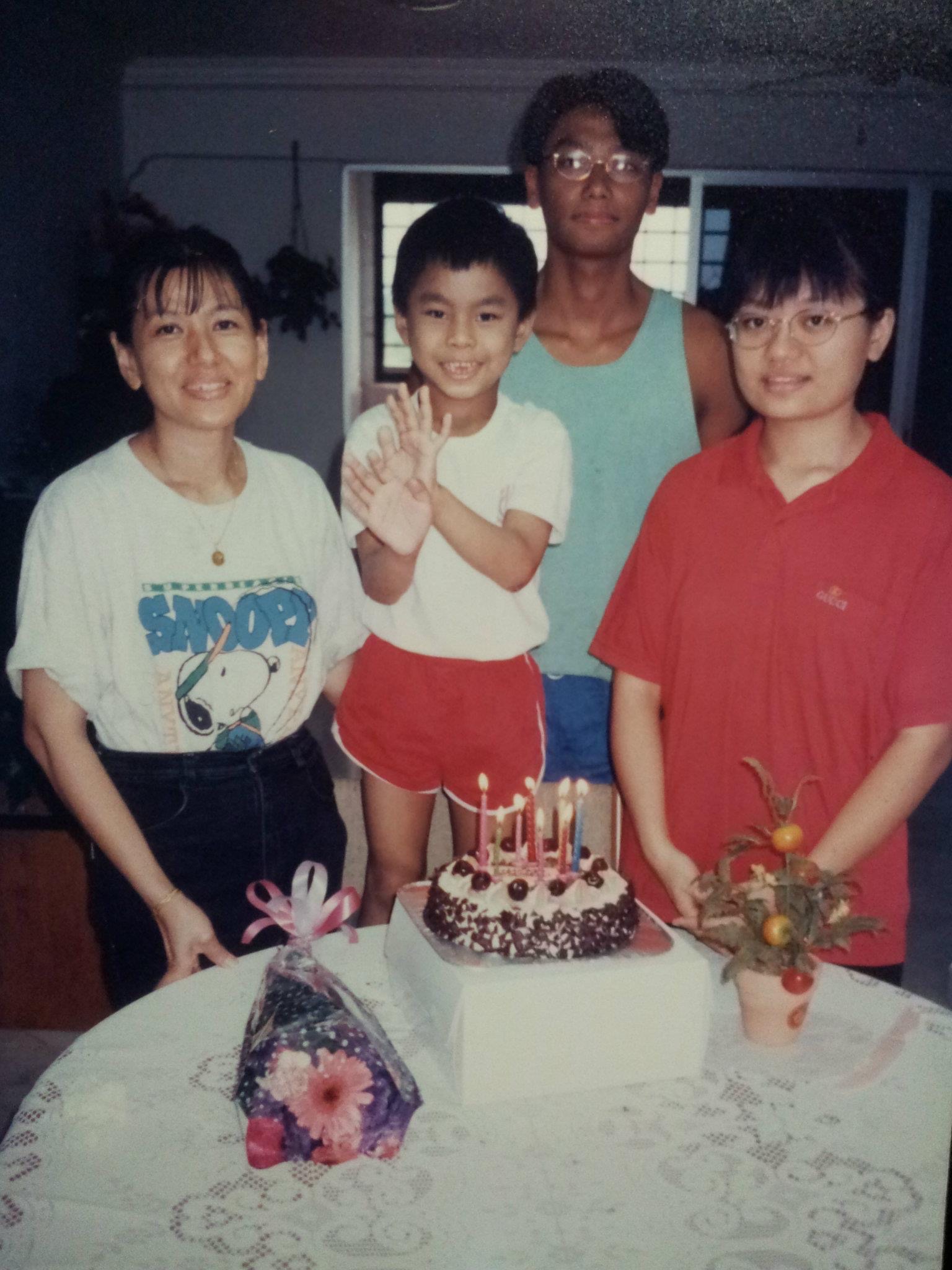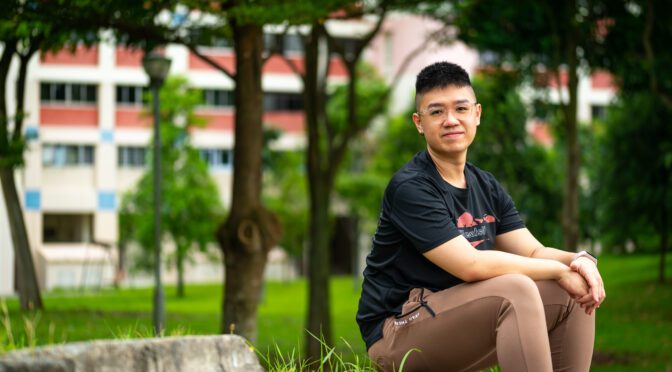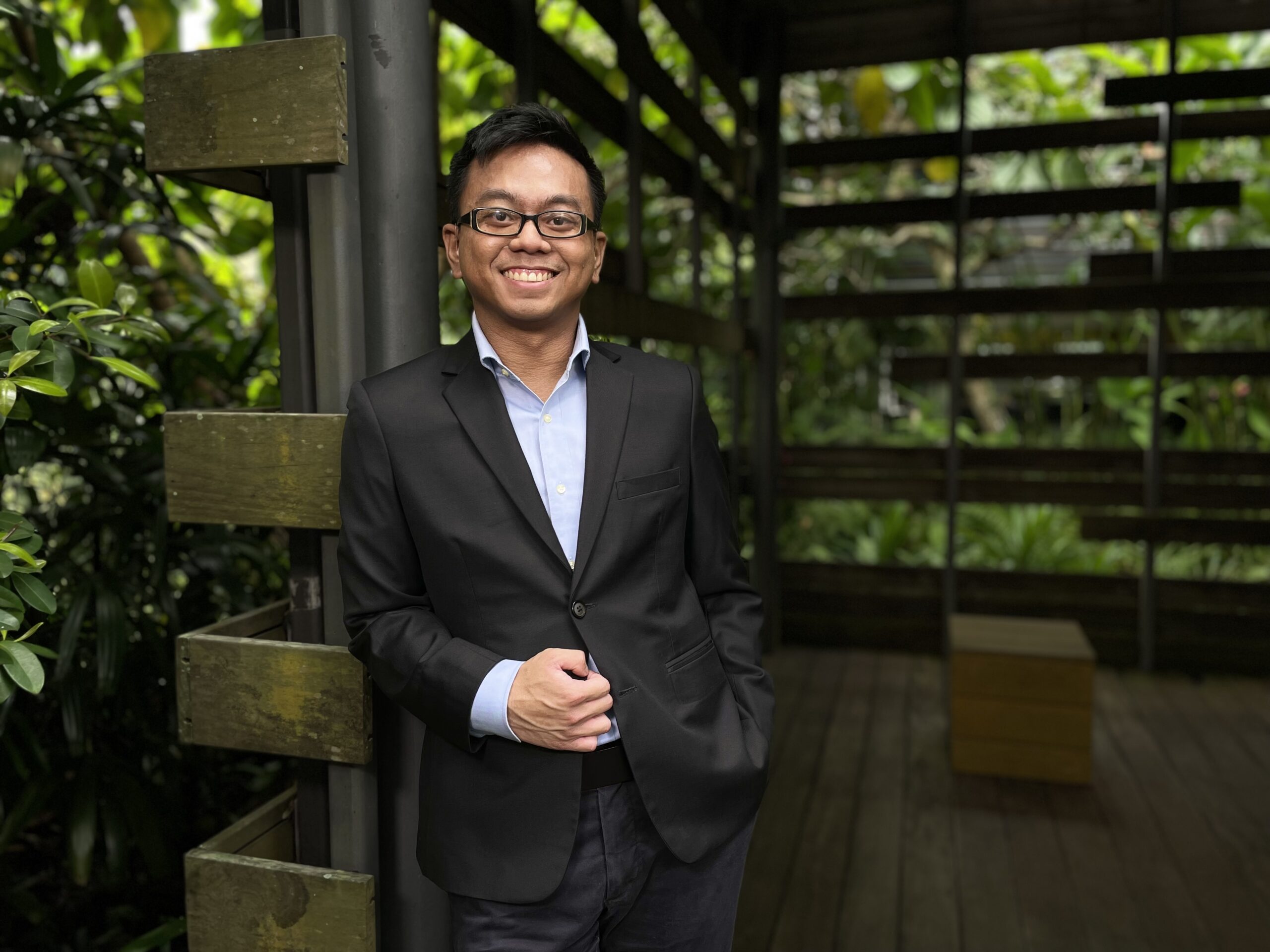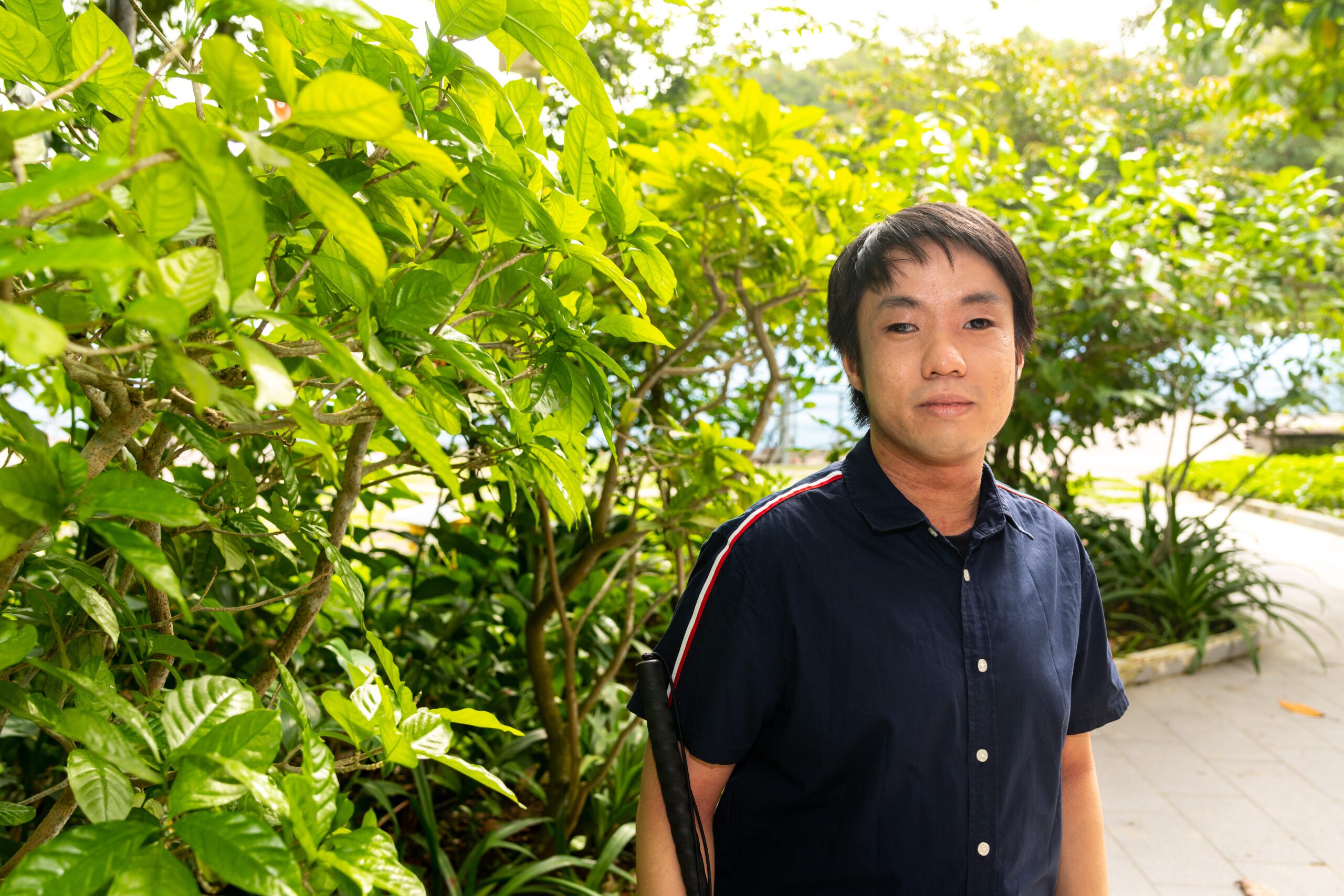All I could do was go home, bury my head in the pillow and cry. I thought: ‘Why was life so unfair to me?’ At the time, it felt as if I was the only person, in a school of thousand-plus students, living with a disability. It was very lonely. In the nineties, teachers themselves were yet inclusive, so they never sat me down to ask how I was coping. I guess their chief priority was for their students to score good grades — I was just one out of forty students, so I was the least of their problems. They did instruct the class to cease the taunting, though no punishment was ever meted. But the more the teachers said anything, the more aggressive and persistent the bullying became. I had the good sense of keeping the bullying a secret from my parents — being the typical ‘tiger’ parents that they were, they would have kicked up a fuss and demanded to confront the bullies. And that would have only exacerbated the matter.
Some relief came in the form of my best friend cum confidante, to whom I’d pour out all my innermost thoughts. I met him in Primary Five when we were in the same class, and we hit it off immediately. We have remained best friends for twenty-five years: today, we still catch up through activities such as catching movies together, visiting theme parks, playing badminton and cycling. Playing computer games also took my mind off things. The virtual worlds of Starcraft, Red Alert, Final Fantasy VII and Worms 2 were my sanctuaries, free from bullies and problems. As a coping mechanism, I imagined exacting retribution on my bullies. I imagined pulling their spectacles off and throwing them out the window. It’s childish, I know, but hey, I was a child when the bullying happened.
When I turned twelve, I gained a little more size, and that gave me some courage. I began carrying out small acts of retaliation. My class monitor kept a disciplinary record book: whereas my classmates would maybe have ten strikes throughout the year, I got thirty. Incidentally, he was one of my bullies as well. How did I retaliate? I would snatch my classmates’ water bottles and force them to chase after me. I was no longer a monkey; I was a cat, small but agile, and each one of them the mouse. The taking was easy, because the water bottles were not fixed on their bodies, like spectacles. I would pilfer some chalk from the whiteboard and scatter some chalk dust on to their hair without their knowing. There was once I exploded when one of the bullies took things too far. I stood up and pushed him so hard that he went tumbling over his table, his stationeries flying everywhere like kicked-up dust. The class went deathly quiet. They probably did not expect that this weakling had not only the strength but also the courage to retaliate physically. I should have felt guilt for inflicting hurt, but in that very moment, I felt only pride. I was like a battle-scarred soldier savouring his first victory. But that feeling dissipated as my bully recovered his stance and charged at me. A shoving altercation ensued, and it ended as quickly as it started, all thanks to our teacher who walked in on us and interrupted our fight. Even though I was the victim, I was of course disciplined along with my bully, and we were both made to stand outside the classroom till the bell rang.
I think that because I was getting bullied, I craved attention for myself. At that age, validation from my peers was worth more than gold. Deep down, I wanted them to see my worth. I wanted so much for them to see that I wasn’t the weakling they had made me out to be. But it was a vicious cycle: the more I retaliated, the more my bullies ganged up on me. Looking back now as an adult, I do regret my behaviour. Perhaps I should have been content with just fantasising about retaliating, and not actually doing it. Perhaps I could have used words. Perhaps standing up for myself could have been making a simple yet defiant statement: ‘Could you guys stop bullying me?’ Perhaps I could have sat them down and explained to them about my disability.
Even as a child who was grappling with bullying, mentally I remained strong. Despite all that I was going through, I did pretty well for my Primary School Leaving Examination (PSLE), getting a score of two hundred and fifty-nine. The only aspects where I passed by the skin of my teeth were listening comprehension and oral examination — two components that most of my classmates (and I’m sure most students) scored an easy distinction for. The recording for listening comprehension was played over a radio, and there were no lips for me to read. Because I was being bullied, I became withdrawn and didn’t want to converse with people other than my best friend. When it came to interactions, there was a cloud of fear that hung over me. I was afraid of misunderstanding what the other party was saying. I was afraid of giving the wrong reply and being a laughingstock. Even my own mother remarked that the way I spoke, it was as if I had a tongue-tie. All these combined factors affected my speech development and overall confidence.
After my PSLE, I went to an all-boys secondary school. I wish I could say the bullying stopped entirely, but it didn’t. My classmates made a habit of aiming their squeeze bottles at me and squirting water on to me. Teenagerhood is a time when many boys discover wrestling — who was a better target practice for my classmates than I? Fortunately, they didn’t practise their moves on me, but my possessions. My classmates would take my bag and slam it to the ground. The front compartment of my bag was where I kept my calculator, so whenever they did that, my heart would race because I was afraid they would damage it. How would I explain a shattered calculator (and multiple ones) to my parents? They also flung my pencil case, books and water bottle out of the window, so I would have to run all the way down to the ground floor to retrieve them. But I feel that the bullies didn’t target me specifically because of my disability. For one, they never laid their hands on my hearing aids. Their taunting was less overt: I don’t recall any allusions to words like ‘deaf’. I think they singled me out because they needed someone to bully, and I just fit the profile: I was a guy of an average build with a small social circle, and I wore contraptions over my ears that shouted out to the world that I was different. And being different is simply unacceptable.
The teasing and bullying caused my self-esteem to plummet to rock bottom. Eating at me was this paranoia that everyone was staring at my hearing aids and judging me for having a disability. It’s not hysterical, mind you. Whenever people on the streets stood in proximity to me, I could feel their gaze trace the shape of my hearing aids. And when people, especially strangers, conversed with me, instead of maintaining eye contact, their eyes would inevitably wander and fixate on my ears. It was very unnerving. Whenever that happened, I just wanted to get out of the conversation as quickly as I could. This paranoia weighed so heavily on my mind that eventually I chose to remove my hearing aids whenever I was out in public. Between losing my situational awareness, risking not being able to hear oncoming traffic and being crushed by my own insecurities, I chose the lesser of two evils.



